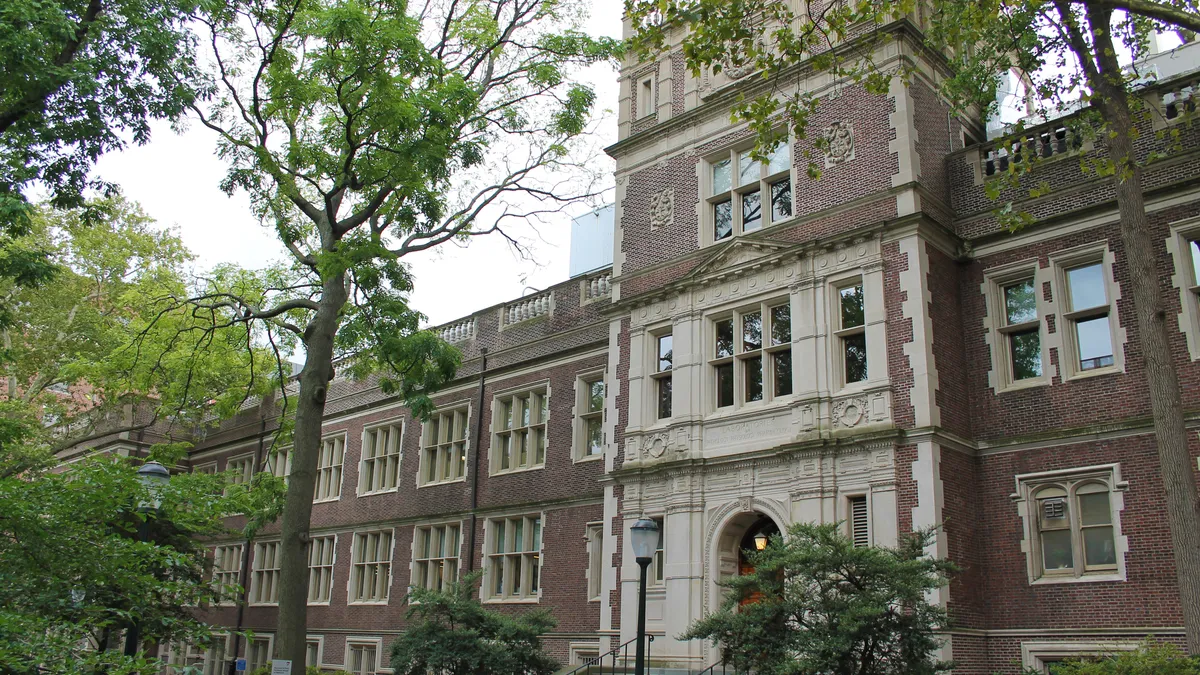Dive Brief:
- Use of artificial intelligence has become more common in the college classroom, and advocates say it can help with everything from improved writing skills to understanding DNA theory, according to the Chronicle of Higher Education.
- Critics charge, however, that AI may be used to gloss over structural problems in higher education and result in formulaic teaching and potential threats to privacy.
- In a broad look at the use of AI at colleges and universities, the Chronicle of Higher Education notes that it can perhaps fine tune assignments, analyze student writing to see if it is on track and recommend prompts and organize lesson plans, adjusting them according to student understanding. AI systems allow some instructors more time for individual interaction with students giving them more information about their performance as a group and individually. Advanced systems might use machine learning to gather data and, for instance, design a better textbook or provide recommendations to medical students about the right procedure in certain circumstances.
Dive Insight:
Proponents say that professors freed from routine tasks by AI technology can further challenge students to get a deeper understanding of material and assess them more accurately. For instance, adaptive courseware allows a professor to use a dashboard to assess how students are doing with homework and quizzes, check their mastery of the work and then perhaps offer a weekly lesson to fill gaps.
Beyond that, researchers are developing technology that can provide study tips based on student behavior and work, or even guide teachers to provide teachers with feedback. Grades, researchers say, don't change much when AI is used.
Nevertheless, a 2018 Gallup-Northeastern University survey shows that of 3,297 U.S. citizens interviewed, only 22% with a bachelor’s degree said their education left them “well” or “very well prepared” to use AI in their jobs.
Critics say the technology is simply a money-saving tool that will eliminate a professor's personal touch in delivering information, assessing students and other important interactions. They also say there are privacy concerns because AI often uses large banks of data about students.
Adaptive courseware is most popular in STEM courses where it is easier to deliver content and assess understanding. Students learning about DNA in a smaller class than normal for introductory science at Arizona State University read some text, watch a video and take an assessment overnight to measure their understanding, thus providing more detail before a discussion with professor.
AI advocates also say it can generate more writing in a class and more peer review of writing, which has been shown to improve student skills. One program requires each student to post two questions relevant to the course, answer two others, then review one from a classmate. It also monitors efforts to keep students on track.
AI is increasingly used on other parts of the campus to automate routine systems, and experts say it is likely to grow in use in the admission process, according to a new book.












